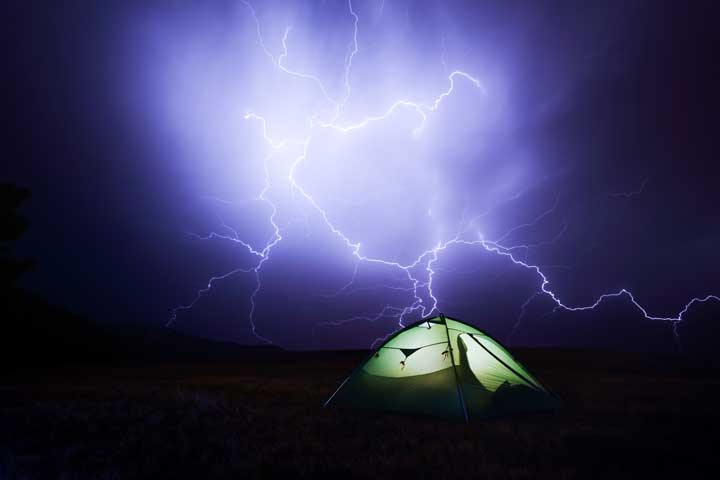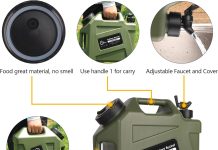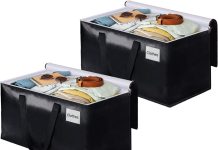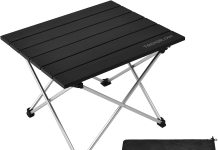Imagine being surrounded by nature, the peaceful sounds of chirping birds and rustling leaves, when suddenly the sky darkens and thunder roars overhead.
As the rain begins to pour, you seek refuge in your trusty tent.
But amidst the flashes of lightning and booming thunder, a question arises in your mind: Are you truly safe in a tent during a thunderstorm?
Review contents
What to consider before setting up a tent in a thunderstorm
Location of the tent
When setting up your tent during a thunderstorm, it is crucial to consider the location carefully. Avoid setting up your tent in low-lying areas that could quickly flood during heavy rain.
Look for higher ground instead, as it is less likely to accumulate water. Additionally, try to find a spot sheltered from strong winds to prevent your tent from being blown away or damaged.
The type of tent
The type of tent you choose can significantly impact your safety during a thunderstorm. Opt for tents designed for inclement weather conditions, such as those made from durable and waterproof materials. Look for tents with sturdy poles and robust structures to withstand high winds.
Proximity to tall objects
It is essential to consider the proximity of your tent to tall objects, such as trees or poles, during a thunderstorm.
These objects can increase the risk of lightning strikes and falling debris. Avoid setting up your tent directly under or near tall objects to reduce the chances of damage or injury.
The weather forecast
Check the weather forecast before starting a camping trip and setting up your tent.
Thunderstorms can be unpredictable and dangerous, so knowing any severe weather warnings or advisories is vital. If a thunderstorm is expected, postponing your camping plans for a more favorable weather window might be wiser.
Emergency evacuation plan
In case the thunderstorm intensifies and poses a significant threat, it is crucial to have an emergency evacuation plan in place.
Identify nearby shelters or safe areas to seek refuge if your tent becomes unsafe. Communicate this plan with your camping companions and ensure everyone knows how to execute it in an emergency.
Evaluating the Safety of a tent during a Thunderstorm
Risk of lightning strikes
One of the primary concerns when camping in a thunderstorm is the risk of lightning strikes. Lightning is a natural phenomenon that can be deadly if it comes into contact with your tent.
The taller and more exposed your tent, the higher the risk of attracting lightning. Evaluate the landscape surrounding your campsite and choose a location that minimizes the chances of being struck by lightning.
Tent material and structure
The type of tent material and structure can significantly impact its safety during a thunderstorm.
Look for tents made from materials that are durable and can withstand heavy rain and strong winds. Ensure the tent has a sturdy frame and reliable support system to prevent it from collapsing under extreme weather conditions.
Electrical conductivity
Consider the electrical conductivity of your tent material. Some tent fabrics have higher conductivity, which can increase the risk of electrical shocks during a thunderstorm. Choose tents made from materials with low electrical conductivity to reduce this risk.
Grounding the tent
Properly grounding your tent can help minimize the risk of electrical discharge during a thunderstorm. Use an appropriate grounding method, such as a groundsheet or stake, to ensure the tent is properly grounded and reduces potential electrical hazards.
Stability in high wind conditions
Ensure that your tent is designed to withstand high wind conditions. Look for tents with sturdy poles and secure tie-downs to keep your tent stable during gusty winds.
Reinforce the tent with extra guy lines and stakes to enhance its stability.
Preventive measures for staying safe in a tent during a thunderstorm
Monitoring weather updates
Stay vigilant and monitor weather updates regularly when camping in a thunderstorm. Keep a portable weather radio or a smartphone with a reliable weather app to stay informed about any changes in weather conditions.
Knowing when a thunderstorm is approaching allows you to take necessary precautions and make informed decisions about your safety.
Preparing the tent
Prepare your tent before the thunderstorm hits to maximize your safety. Securely anchor your tent by using additional stakes and guy lines. Make sure all zippers and flaps are closed tightly to prevent rainwater from entering. Additionally, consider using a rainfly or tarp to provide extra protection against heavy rain and wind.
Finding a low-lying position
If you are in your tent during a thunderstorm, assume a low-lying position to minimize the chances of being struck by lightning. Lie on sleeping pads or mattresses to create further insulation between yourself and the ground.
Avoiding direct contact with tent components
During a thunderstorm, it is essential to avoid direct contact with the tent’s components, such as poles and tent fabrics.
Lightning can travel through conductive materials and pose a severe risk of electrical shock. Avoid touching the tent walls or poles during a storm to minimize exposure to potential electric currents.
Reducing electrical risks
Minimize using electrical devices or gadgets inside your tent during a thunderstorm. Unplug any electrical equipment to eliminate the risk of an electrical surge or shock.
Avoid using electronic devices, such as smartphones or laptops, and do not charge them inside the tent.






































